Why I started the Journalism Hangout and now it’s spreading across the country
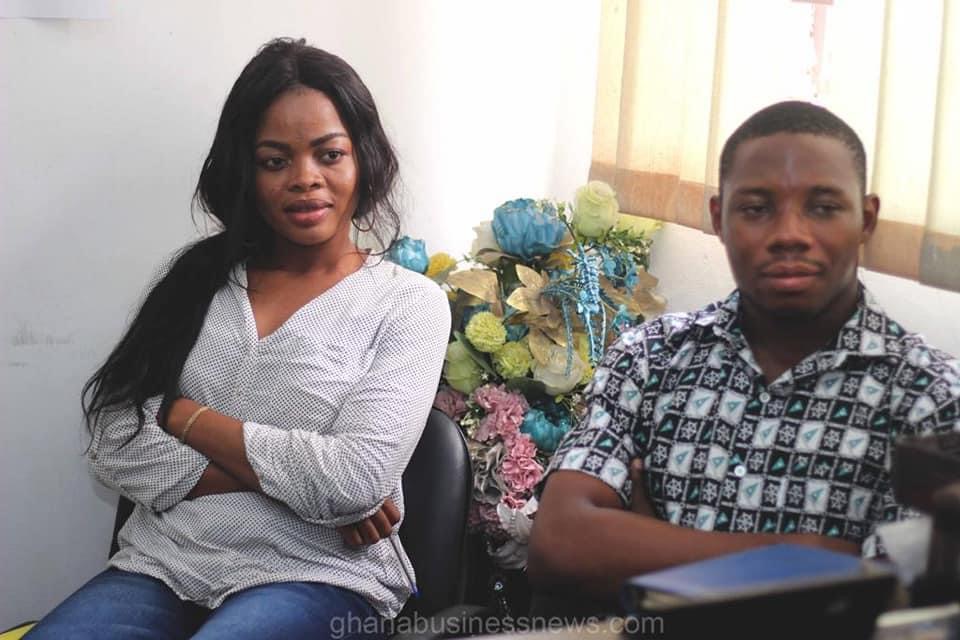
The Journalism Hangout is an informal training event that I started in May 2019. I held the first one in my office on May 3, 2019. There were five of us. Jonas Nyabor, Ayishatu Zakaria Ali, Muftawu Nabila Abdulai, Gifty Danso and myself.
The Journalism Hangout was borne out of the desire to meet the deep, and indeed desperate need for continuous training of journalists in Ghana. That need has been established beyond reasonable doubt.
Ghanaian journalists at every level need regular training to review their reporting techniques, learn new ways of doing things and to also validate or discount some attitudes in practice in many newsrooms. The emergence of AI has made the need even more urgent.
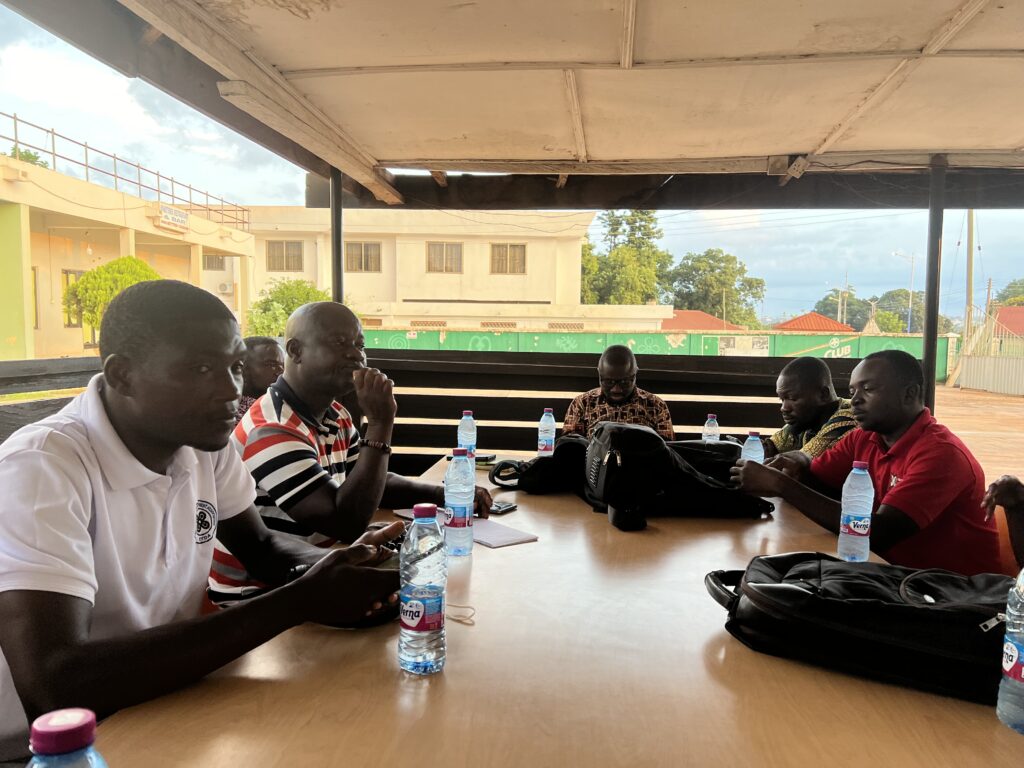
When NewsBridge Africa started doing journalism training across the country, we discovered that most journalists, including graduates of some major journalism training institutions in Ghana, didn’t have basic skills like how to develop or pitch a story idea. The feedback we got, especially in Tamale, where we did a training funded by the US Embassy in Accra accentuated that need for training in basics such as how to pitch a story and fact-checking techniques.
“Learning from an experienced hand made the Hangout truly insightful and motivating, sparking me to aim higher and achieve more,” says Michael Sarpong Mfum.
Most of the journalists were grateful and some have improved after that training.
Following that, other training sessions in Accra in business journalism, fact-checking and storytelling further showed the need for regular training must be paramount for consistent improvement in the quality of journalism in the country.
Some of these training programmes were sponsored by the Australian High Commission, the World Bank and TIGO.
Some organizations and institutions have also consulted me to do training on investigative journalism, reporting illicit financial flows, covering beneficial ownership and peace journalism. These are the Media Foundation for West Africa, the Danish Embassy and International Justice Movement among others.
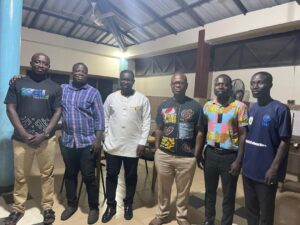
And some of the journalists who have been to these training programmes have continued to ask for repeat training, while others who have heard about our training programmes from their friends have also asked to be trained. While we have been enthusiastic about doing regular training for journalists, funding is hard to come by. While the overall cost of a training programme for journalists might not be too high for most grant making organizations and institutions, they are not very keen on funding training for journalists. That’s because the results of journalism training are not always tangible.
However, the benefits of the Journalism Hangout is exceeding my expectations as some the journalists continue to share about their experiences after every Hangout.
“Learning from an experienced hand made the Hangout truly insightful and motivating, sparking me to aim higher and achieve more,” says Michael Sarpong Mfum, a participant.
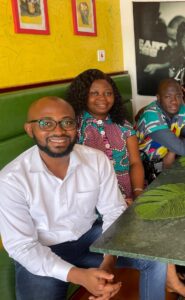
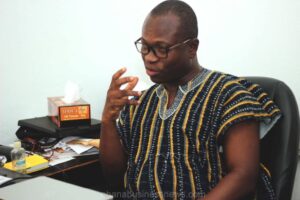
Another journalist, Frank Addo Aboagye says: “It was a great and insightful meeting. For me, meeting Emmanuel Dogbevi, one of the finest in the industry because of his invaluable experience and other media colleagues, was a great opportunity. The rich discussions served as a moment to reconnect, learn, and interact with many of my colleagues. I particularly enjoyed Mr. Dogbevi’s stories and fascinating experiences, which were enlightening and motivating. I am grateful to him for sharing his wisdom and insights with us because his experience and expertise are invaluable to our growth as journalists. I look forward to more of such hangouts.”
“It was a great experience to learn from a senior man..we need more of this to empower us to enable us give our best..,” says Daniel Bruce Dzirasa.
Some organizations or institutions would prefer to fund the building of community toilets, or school facilities than fund the training of journalists. Because they can show photos of these facilities to their constituents and or financiers. Unlike the fruits of journalism – even though known and acknowledged to be important but are not always material.
So as the struggle to raise funding for training became ever harder, I thought of a more affordable way to do training without breaking the bank. That was when I had the idea of the Journalism Hangout.
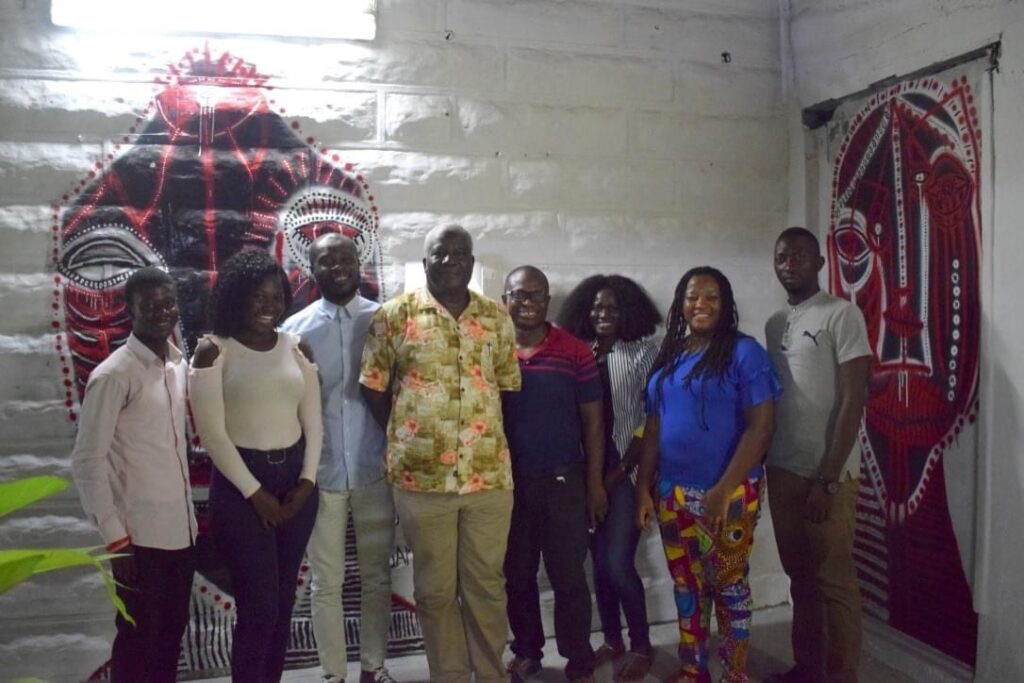
The first was held in my office. I provided some drinks and snacks. While the session went on, the journalists brought out their notebooks and started taking notes. That brought home the importance and relevance to me. That the Hangout could be a unique, but special informal means of training journalists.
I have since then organized many more in my office, and in restaurants around Accra. There was one Hangout we did a combination of journalism and public relations that was graciously supported by Michael Bruce.
My friend and one of Ghana’s longest serving journalists, Francis Kokutse has also provided support and participated in some of the Hangouts, sharing valuable knowledge and experience.
I have since organized the Hangout outside Accra – in Tamale, Koforidua and recently in Sunyani.
In addition to learning, the Hangout has become a source of networking.
We’ve had other professionals such as teachers, policy experts and writers join the sessions. We’ve also had an American and Nigerian journalist join us at some of the sessions.
The relaxed atmosphere at the Hangouts allows for trusted and open conversations about journalism. We discuss ethics, techniques of investigation, fact-checking, newsroom culture, storytelling, editing, the law and safety of journalists.
But more importantly, the Hangout motivates, inspires and encourages journalists to improve on their work.
By Emmanuel K Dogbevi
Copyright ©2024 by NewsBridge Africa
All rights reserved. This article or any portion thereof may not be reproduced or used in any manner whatsoever without the express written permission of the publisher except for the use of brief quotations in reviews.
